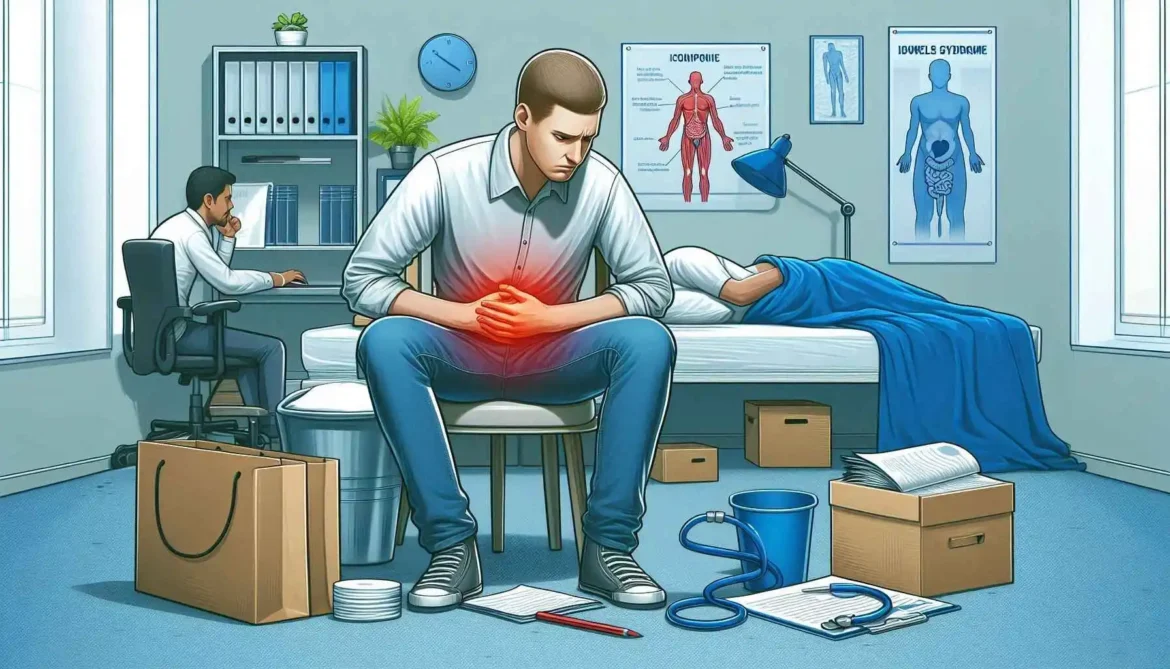
Understanding IBS: Causes, Symptoms, and Treatment Options
As we navigate the complexities of our digestive health, we often come across the term IBS, or Irritable Bowel Syndrome. But what exactly is IBS, and how does it affect our overall well-being? In this article, we’ll delve into the world of IBS, exploring its causes, symptoms, and treatment options.
What is IBS?
Irritable Bowel Syndrome, or IBS, is a chronic gastrointestinal disorder characterized by recurring abdominal pain, bloating, and changes in bowel movements. It’s a functional disorder, meaning that there’s no visible evidence of damage or disease in the digestive tract, but the way it functions is impaired. IBS is a common condition, affecting around 10-15% of adults worldwide.
“The gut is not just a digestive system, it’s a complex ecosystem that influences our overall health and wellbeing.” – Dr. Emeran Mayer, Gastroenterologist and Author
Causes of IBS
While the exact causes of IBS are still not fully understood, research suggests that it’s a multifactorial condition, influenced by a combination of factors. Some of the possible causes of IBS include:
- Abnormal gut motility: The muscles in the digestive tract may contract too strongly or too weakly, leading to changes in bowel movements and abdominal pain.
- Hypersensitivity: People with IBS may be more sensitive to normal stimuli, such as the presence of food in the gut, which can trigger symptoms.
- Inflammation: Low-grade inflammation in the gut may contribute to IBS symptoms.
- Stress and anxiety: Stress and anxiety can exacerbate IBS symptoms, and may even contribute to its development.
- Diet and lifestyle: A diet high in processed foods, sugar, and unhealthy fats, as well as a lack of physical activity, may contribute to IBS symptoms.
- Hormonal changes: Hormonal fluctuations during menstruation, pregnancy, or menopause may affect bowel habits and contribute to IBS symptoms.
Symptoms of IBS
The symptoms of IBS can vary widely from person to person, but common complaints include:
- Abdominal pain and cramping: Pain or discomfort in the abdomen, which can range from mild to severe.
- Bloating and gas: Feeling uncomfortably full or bloated, often accompanied by gas and discomfort.
- Changes in bowel movements: Diarrhea, constipation, or alternating between the two.
- Mucus in the stool: Passing mucus or white discharge with bowel movements.
- Urgency: Feeling a sudden, urgent need to have a bowel movement.
Some people with IBS may experience additional symptoms, such as:
- Fatigue
- Back pain
- Headaches
- Nausea and vomiting
Diagnosis and Treatment
Diagnosing IBS can be challenging, as the symptoms can be similar to those of other conditions. A healthcare professional will typically diagnose IBS based on a combination of:
- Medical history
- Physical examination
- Symptom assessment
- Ruling out other conditions, such as inflammatory bowel disease (IBD) or celiac disease
Treatment for IBS typically involves a combination of lifestyle changes, dietary modifications, and medications. Some common treatment approaches include:
Lifestyle Changes
- Stress management: Stress-reducing techniques, such as meditation, yoga, or deep breathing exercises.
- Regular exercise: Engaging in regular physical activity to improve gut motility and overall health.
- Adequate sleep: Getting enough sleep to help regulate bowel habits and overall health.
Dietary Modifications
- Avoiding trigger foods: Identifying and avoiding foods that trigger IBS symptoms, such as dairy, gluten, or spicy foods.
- Following a low-FODMAP diet: Reducing or avoiding fermentable carbohydrates, which can exacerbate IBS symptoms.
- Increasing fiber intake: Gradually increasing fiber intake to help regulate bowel movements.
Medications and Supplements
- Antispasmodics: Medications that help relax the muscles in the digestive tract and reduce cramping.
- Laxatives or anti-diarrheal medications: Medications that help regulate bowel movements.
- Probiotics: Beneficial bacteria that can help restore the balance of gut flora.
Key Takeaways
- IBS is a chronic gastrointestinal disorder characterized by recurring abdominal pain, bloating, and changes in bowel movements.
- The exact causes of IBS are still not fully understood, but it’s influenced by a combination of factors, including abnormal gut motility, hypersensitivity, inflammation, stress, and diet.
- Treatment for IBS typically involves a combination of lifestyle changes, dietary modifications, and





